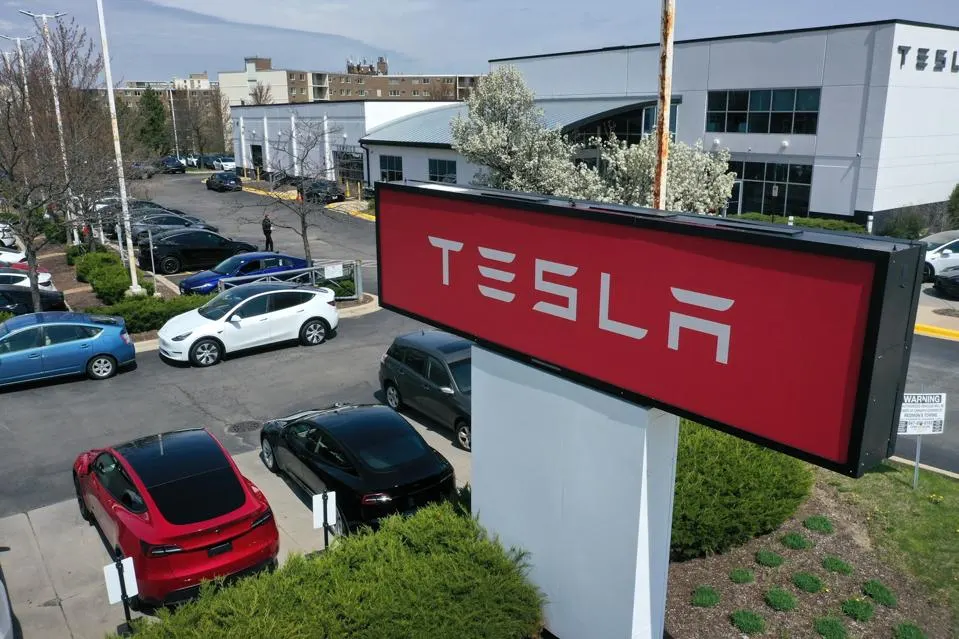Tesla's Growing Demand for H-1B Talent: A Glimpse into the Future of High-Skilled Immigration

The electric vehicle and energy company founded by Elon Musk, Tesla, has, through the H-1B visa program, become one of the biggest employers of foreign-born scientists and engineers. In fiscal year 2024, Tesla saw the approved amount of H-1B petitions more than double, totaling 742 for first-time employment compared to the total in 2023. This reflects the increasing dependence of such companies on international skills from all regions, while stressing the central role programs like the H-1B play in shaping the workforce.
The H-1B visa program is of great importance to many U.S. employers, especially in fields like technology and engineering, where demand far exceeds the supply of skilled workers within U.S. borders. The approval rate of H-1B petitions has been rising, and Tesla has continued to try to remain on the cutting edge of technological development, given the focus that the company has placed on making electric vehicles, energy storage solutions, and solar panels. With this growth rate, and the even faster pace at which the world is innovating, the company always requires more engineers to become the world's best engineers, more software developers to be among the best developers in the world, and more data scientists and mechanical engineers to solve complex world problems. Hiring need not be bound by location; the best talent can often be sourced across national borders to stay ahead in what is increasingly a dynamic market.
The same cannot be said about Tesla alone. In FY 2024, more than 30,000 companies in every industry in the United States used the H-1B program, underlining the important role that skilled foreign nationals play in fueling innovation. Growth in approved petitions is a clear sign of how much U.S. employers rely on international workers to fill specialized roles. This is primarily because the overall H-1B denial rates have been quite low since the legal changes and court judgments occurred in the last couple of years. The denial rate of initial H-1B petitions plummeted to just 2.5% in FY 2024, following a court settlement that vacated several restrictive Trump-era policies from 2020. Improvements in the legal side have relaxed rules for companies, particularly tech-driven ones, regarding hiring skilled foreign workers.
At Tesla, ranked 16th among H-1B petition employers in FY 2024, the company shows very high demand for highly skilled foreign labor, especially technical talent. The company also filed for Labor Conditions for positions ranging from manufacturing engineers (658 positions) to software developers (629 positions) and mechanical engineers (348 positions). The diversity in Tesla's hiring needs reflects how operations cut across various areas, from manufacturing vehicles to energy management. Apart from engineering, requests were made for roles such as project management specialist, industrial production manager, and supply chain manager, with the company needing expertise across multiple disciplines as it expands worldwide.
Beyond Tesla and the tech industry, the H-1B visa program is crucial to employers across the U.S., who argue that they cannot find enough talent within the domestic labor pool to meet their needs. This is especially true in fields like computer science, electrical engineering, and data science, where foreign-born professionals are sometimes essential to filling skill gaps. International students make up a significant proportion of graduates in computer and information sciences and electrical engineering at U.S. universities. The H-1B program allows these highly educated individuals to stay in the country and contribute to the U.S. economy and innovation landscape.
However, the future of high-skilled immigration is uncertain. The previous administration had restrictive policies that limited the number of H-1B visas issued and made those issued subject to more scrutiny. Among the steps considered were limiting the sectors eligible for H-1B status and increasing the prevailing wage requirement to qualify for the status. If these steps are reinstated, it could limit Tesla's ability to hire international personnel necessary for the company's success. As former President Donald Trump runs his campaign for a second term, the restriction of policies could affect the entry of high-skilled foreign workers into the tech world.
On the other hand, optimism seems to soar with increasing numbers of personas like Elon Musk, who has political presence and influence in Silicon Valley, ensuring that smooth immigration policies are followed in the future. Musk, an international immigrant himself, has often been a proponent of policies that would enhance high-skilled immigration, and there is hope among some in the tech community that his influence could lead to more relaxed immigration policies, rather than a return to restrictions.
Regardless of the current political mood, one thing is obviously true: Tesla's dependency on the H-1B program is symptomatic of a far larger trend affecting the U.S. labor market—high-skilled foreign talent is becoming a key driver of competition. As Tesla's workforce continues to push the boundaries in pursuit of technological innovation, the company will increasingly rely on the H-1B program. In this respect, the future of Tesla is intertwined with the future of high-skilled immigration in the United States, just like other tech firms. Companies like Tesla continue to fight for policies that will allow them to source top talent from all over the world as the competition for skills intensifies globally.



